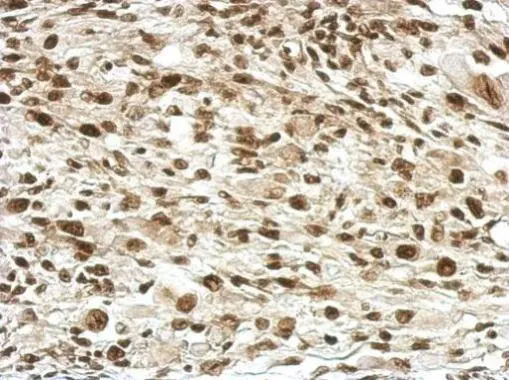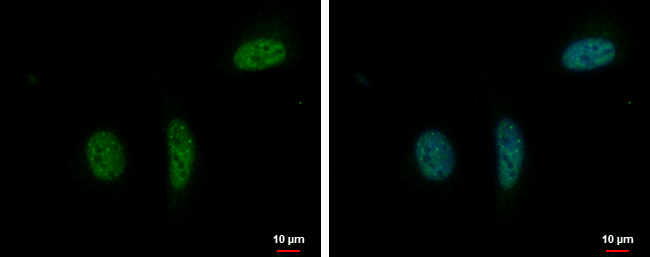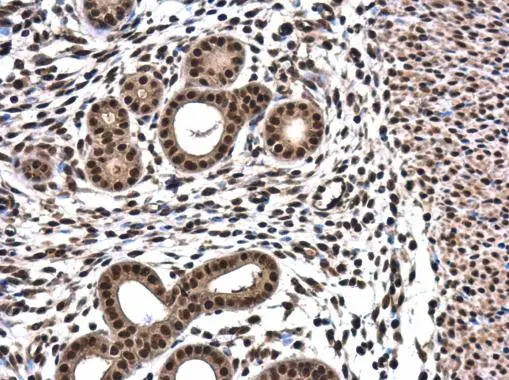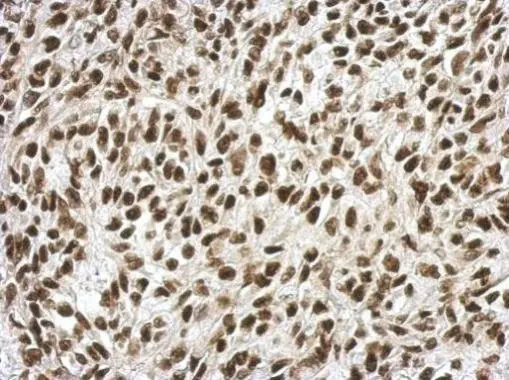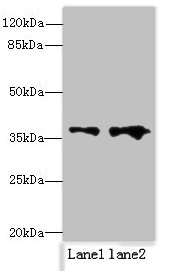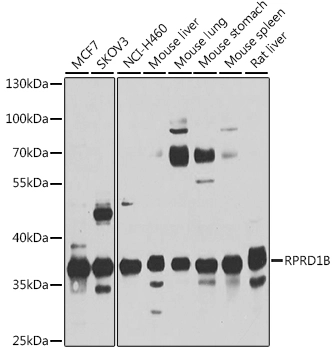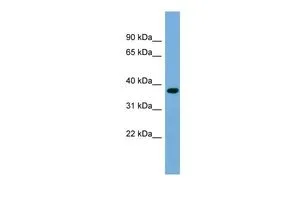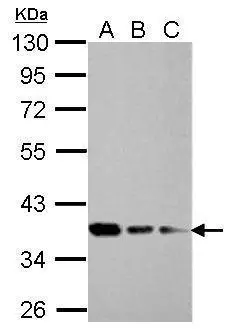
Sample (30 μg of whole cell lysate) A: 293T B: HeLa C: HepG2 10% SDS PAGE GTX119969 diluted at 1:1000 The HRP-conjugated anti-rabbit IgG antibody (GTX213110-01) was used to detect the primary antibody.
RPRD1B antibody
GTX119969
ApplicationsImmunoFluorescence, Western Blot, ImmunoCytoChemistry, ImmunoHistoChemistry, ImmunoHistoChemistry Paraffin
Product group Antibodies
ReactivityHuman, Mouse
TargetRPRD1B
Overview
- SupplierGeneTex
- Product NameRPRD1B antibody
- Delivery Days Customer9
- Application Supplier NoteWB: 1:500-1:3000. ICC/IF: 1:100-1:1000. IHC-P: 1:100-1:1000. *Optimal dilutions/concentrations should be determined by the researcher.Not tested in other applications.
- ApplicationsImmunoFluorescence, Western Blot, ImmunoCytoChemistry, ImmunoHistoChemistry, ImmunoHistoChemistry Paraffin
- CertificationResearch Use Only
- ClonalityPolyclonal
- Concentration1 mg/ml
- ConjugateUnconjugated
- Gene ID58490
- Target nameRPRD1B
- Target descriptionregulation of nuclear pre-mRNA domain containing 1B
- Target synonymsC20orf77, CREPT, K-H, Kub5-Hera, NET60, dJ1057B20.2, regulation of nuclear pre-mRNA domain-containing protein 1B, Ku70-binding protein 5-Hera, cell-cycle related and expression-elevated protein in tumor
- HostRabbit
- IsotypeIgG
- Protein IDQ9NQG5
- Protein NameRegulation of nuclear pre-mRNA domain-containing protein 1B
- ReactivityHuman, Mouse
- Storage Instruction-20°C or -80°C,2°C to 8°C
- UNSPSC41116161

